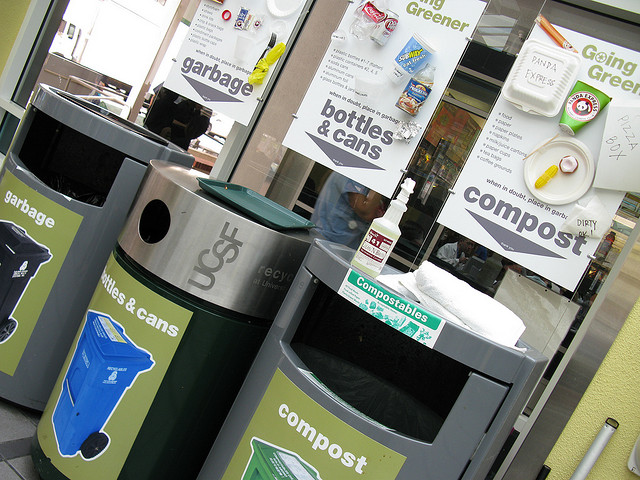Twelve years ago, a client asked a financial advisor at a large investment firm for advice on “socially responsible investments.” The advisor said that they didn’t offer much in that field, because there was no client demand. How things have changed! Now, large investment firms as well as local credit unions and even small, family-owned businesses are all anxious to demonstrate that their business is “socially responsible,” “green,” or “gives back to the community”—all values reflected in the concept of Corporate Social Responsibility (CSR). More than feel-good slogans, these terms represent initiatives that offer concrete benefits to both a company and its stakeholders, including customers and the wider community.
Audit, Compliance and Risk Blog
Allison Campbell
Recent Posts
Do You Need A Corporate Social Responsibility Policy?
Posted by Allison Campbell on Thu, Dec 11, 2014
Tags: Corporate Governance, Business & Legal, Environmental, csr, corporate social responsibility
PHMSA Requires Advance Notice of Construction-Related Events
Posted by Allison Campbell on Mon, Oct 20, 2014
To ensure that operations at gas pipelines, gas pipeline facilities, and LNG plants and facilities are in compliance with a range of conditions, operators of such plants and facilities must provide the US Department of Transportation Pipeline and Hazardous Materials Safety Administration (PHMSA) with 60 days’ advance notice of construction-related events. This advance notice allows time for reviews and inspections to identify any potential compliance issues and avoid costly design changes or delays.
Tags: Corporate Governance, Business & Legal, Health & Safety, Environmental risks, ghg, fracking, hydraulic fracking, Oil & Gas
Earthquakes: Are You Ready to “Shake Out” on October 16?
Posted by Allison Campbell on Tue, Oct 14, 2014
Once a year in our office, someone walks through the halls ringing an old-fashioned school bell. We immediately stop what we are doing, crawl under our desks and brace ourselves, and wait. A few moments later, one of our earthquake marshals comes by to tell us that it is safe to leave the building, and we carefully make our way down the stairs to the designated meeting spot. After checking the staff list and verifying that everyone made it out “safely,” our marshals let us return to our work. It wasn’t an earthquake—this time.
Tags: Corporate Governance, Business & Legal, Employer Best Practices, Health & Safety, Environmental risks, Environmental
Warm summer weather means increased holiday bookings, employees less inclined to stay late, and in some cases, lowered staffing levels. But an empty chair may not mean the employee is out just enjoying the sunshine; they may be taking any one of a number of leaves of absences.
Tags: Corporate Governance, Business & Legal, Employer Best Practices, Employee Rights, Canadian
NTSB and PHMSA Focus on Facility Response Plans for Pipelines
Posted by Allison Campbell on Mon, Jul 14, 2014
Investigation of the 2010 spill at Marshall, Michigan, the largest on-land spill in US history, underlines the reality that a Facility Response Plan (FRP) is more than a government-required document—an inadequate document or plan can lead to environmental and economic disaster. Owners and operators of onshore pipelines must review and update FRPs every five years from the date of last submission or last approval, and whenever new or different operating conditions arise that would affect the plan. (49 CFR 194.121 Response Plan Review and Update Procedures). PHMSA recently released two Advisory Bulletins reminding operators what it requires in an FRP and listing five of the most common reasons for it to reject an FRP.
Tags: Corporate Governance, Business & Legal, Health & Safety, Environmental risks, Environmental, EHS, EPA, Greenhouse Gas, ghg, Hazcom, Oil & Gas, Transportation
Continual Improvement of ISO 14001 Environmental Management Systems
Posted by Allison Campbell on Mon, Apr 07, 2014
Continual Improvement is an important aspect of any EMS and ISO 14001 references it in five separate clauses. To fully benefit from it, it’s not enough to implement a system based on ISO 14001, or even to have your EMS certified as ISO 14001-compliant—you must monitor and maintain your system, and find ways to improve to it. Similarly, the International Organization for Standardization (ISO) reviews and revises its standards in an ongoing effort to improve relevance and effectiveness. ISO 14001:2004 is currently undergoing review, with some big changes expected in the new version due in mid-2015.
Tags: Corporate Governance, Business & Legal, Environmental risks, Environmental, EHS
ISO 14001 and the ISO 26000 Guidance on Social Responsibility
Posted by Allison Campbell on Fri, Jun 07, 2013
Organizations with a well-established ISO 14001 Environmental Management System (EMS) are discovering a new advantage as the issue of “social responsibility” becomes more widespread throughout business communities. EMS managers are finding that techniques and methodology from their EMS can be used to identify and prioritize social responsibility issues and efficiently integrate them into their organization. Furthermore, managers building an EMS system are able to develop it in concert with social responsibility initiatives.
Tags: Corporate Governance, Business & Legal, Employer Best Practices, Environmental, EHS, EPA






